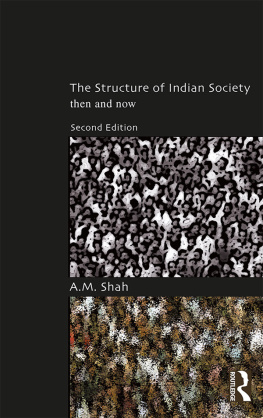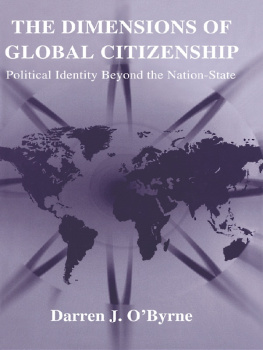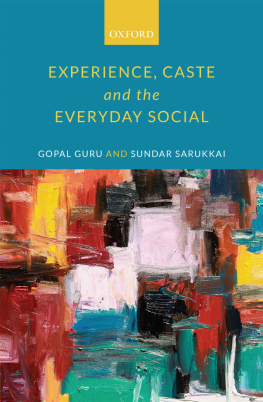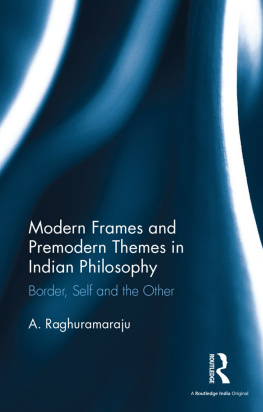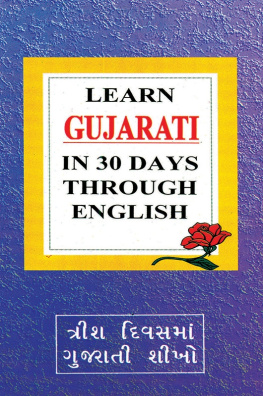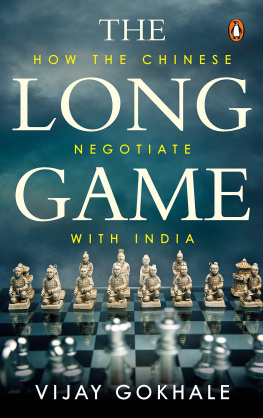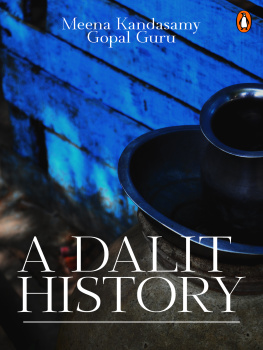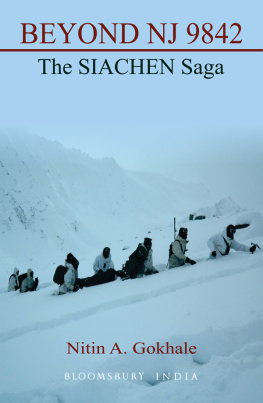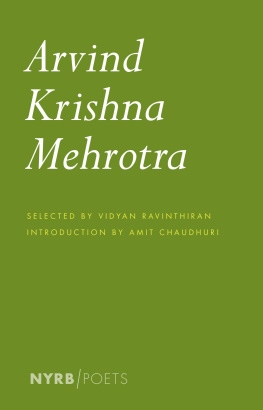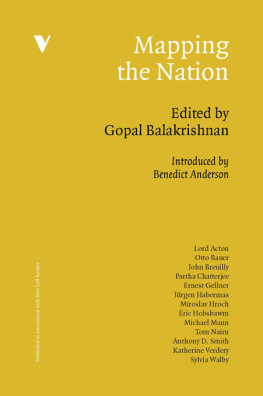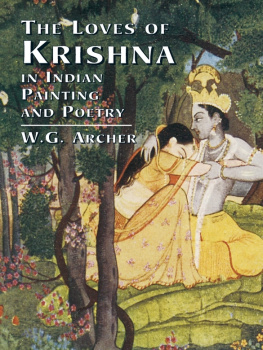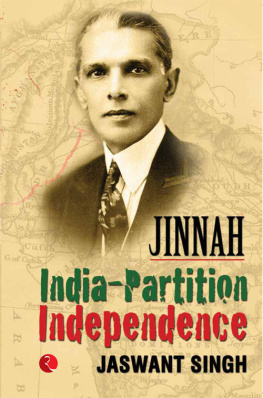
Indian Liberalism between Nation and Empire
This book analyses the political thought and practice of Gopal Krishna Gokhale (18661915), preeminent liberal leader of the Indian National Congress who was able to give a global voice to the Indian cause.
Using liberalism, nationalism, cosmopolitanism and citizenship as the four main thematic foci, the book illuminates the entanglement of Gopal Krishna Gokhale's political ideas and action with broader social, political and cultural developments within and beyond the Indian national frame. The author analyses Gokhale's thinking on a range of issues such as nationhood, education, citizenship, modernity, caste, social service, cosmopolitanism and the women's question, which historians have either overlooked or inserted in a rigid nation-bounded historical narrative. The book provides new enriching dimensions to the understanding of Gokhale, whose ideas remain relevant in contemporary India.
A new biography of Gokhale that brings into consideration current questions within historiographical debates, this book is a timely and welcome addition to the fields of intellectual history, the history of political thought, Colonial history and Indian and South Asian history.
Elena Valdameri is a postdoctoral researcher at the Chair for History of the Modern World, ETH-Zurich, Switzerland. She is a historian of modern South Asia, with specific interest and expertise in the history of political thought and the anticolonial movement.
Routledge Studies in South Asian History
17 Gender, Nationalism, and Genocide in Bangladesh
Naristhan/Ladyland
Azra Rashid
18 Evolution, Race and Public Spheres in India
Vernacular Concepts and Sciences (1860-1930)
Luzia Savary
19 Democracy and Unity in India
Understanding the All India Phenomenon, 1940-1960
Emily Rook-Koepsel
20 Memories and Postmemories of the Partition of India
Anjali Gera Roy
21 Cultural Histories of India
Subaltern Spaces, Peripheral Genres, and Alternate Historiography
Rita Banerjee
22 Bureaucracy, Belonging, and the City in North India
18701930
Michael S. Dodson
23 The History of Forensic Science in India
Saumitra Basu
24 Indian Liberalism between Nation and Empire
The Political Life of Gopal Krishna Gokhale
Elena Valdameri
For more information and a full list of titles published in this series, please visit: https://www.routledge.com/asianstudies/series/RSSAH
First published 2022
by Routledge
4 Park Square, Milton Park, Abingdon, Oxon OX14 4RN
and by Routledge
605 Third Avenue, New York, NY 10158
Routledge is an imprint of the Taylor & Francis Group, an informa business
2022 Elena Valdameri
The right of Elena Valdameri to be identified as author of this work has been asserted in accordance with sections 77 and 78 of the Copyright, Designs and Patents Act 1988.
All rights reserved. No part of this book may be reprinted or reproduced or utilised in any form or by any electronic, mechanical, or other means, now known or hereafter invented, including photocopying and recording, or in any information storage or retrieval system, without permission in writing from the publishers.
Trademark notice: Product or corporate names may be trademarks or registered trademarks, and are used only for identification and explanation without intent to infringe.
British Library Cataloguing-in-Publication Data
A catalogue record for this book is available from the British Library
Library of Congress Cataloging-in-Publication Data
A catalog record has been requested for this book
ISBN: 978-0-367-47032-6 (hbk)
ISBN: 978-1-032-21201-2 (pbk)
ISBN: 978-1-003-03742-2 (ebk)
DOI: 10.4324/9781003037422
Typeset in Baskerville
by KnowledgeWorks Global Ltd.
Contents
1Liberalism
The promises of a Western education
Teacher and journalist
Learning at Ranade's feet
Coming to the political fore
Amidst the stormy and uncertain sea of public life
Conclusion
2Nationalism
Geographical entity or nation?
From India to Indians: A civil religion
Building the nation beyond the nation
Accommodating difference: The Muslim question
National pedagogies: The depressed classes
Conclusion
3Cosmopolitanism
A Hindu in the heart of empire: A passage to England
Campaigning for the Indian cause in the metropole
A liberal empire?
The Universal Races Congress
A moral education for the Indian youth
The South African question: A means to other ends?
Diaspora, empire and nation
Conclusion
4Citizenship
Envisioning citizenship, making citizens
Serving India?
Teaching temperance
Social rights between welfare and charity
Mass education, national development, democracy
Conclusion
Conclusion
- 1 Liberalism
- The promises of a Western education
- Teacher and journalist
- Learning at Ranade's feet
- Coming to the political fore
- Amidst the stormy and uncertain sea of public life
- Conclusion
- 2 Nationalism
- Geographical entity or nation?
- From India to Indians: A civil religion
- Building the nation beyond the nation
- Accommodating difference: The Muslim question
- National pedagogies: The depressed classes
- Conclusion
- 3 Cosmopolitanism
- A Hindu in the heart of empire: A passage to England
- Campaigning for the Indian cause in the metropole
- A liberal empire?
- The Universal Races Congress
- A moral education for the Indian youth
- The South African question: A means to other ends?
- Diaspora, empire and nation
- Conclusion
- 4 Citizenship
- Envisioning citizenship, making citizens
- Serving India?
- Teaching temperance
- Social rights between welfare and charity
- Mass education, national development, democracy
- Conclusion
- Conclusion
Acknowledgements
I have incurred many debts in writing this book and I would like to warmly thank all the individuals who have helped me with their intellectual generosity, inspiration and friendship. In particular, I want to thank Maria Framke, Parimala V. Rao, Joanna Simonow, Chandralekha Singh, Gagan Preet Singh, Massimiliano Vaghi, Lucio Valent and Carey Watt for having read and commented on drafts of my chapters. To my teachers, Michelguglielmo Torri and Harald Fischer-Tin, my debts are infinite: with their intellectual passion and rigor, they have been a constant source of inspiration. The constant encouragement I have received especially from Harald has been crucial for carrying out this intellectual enterprise. Thanks are also due to my colleagues and friends at the Chair for History of the Modern World, at ETH Zurich.


